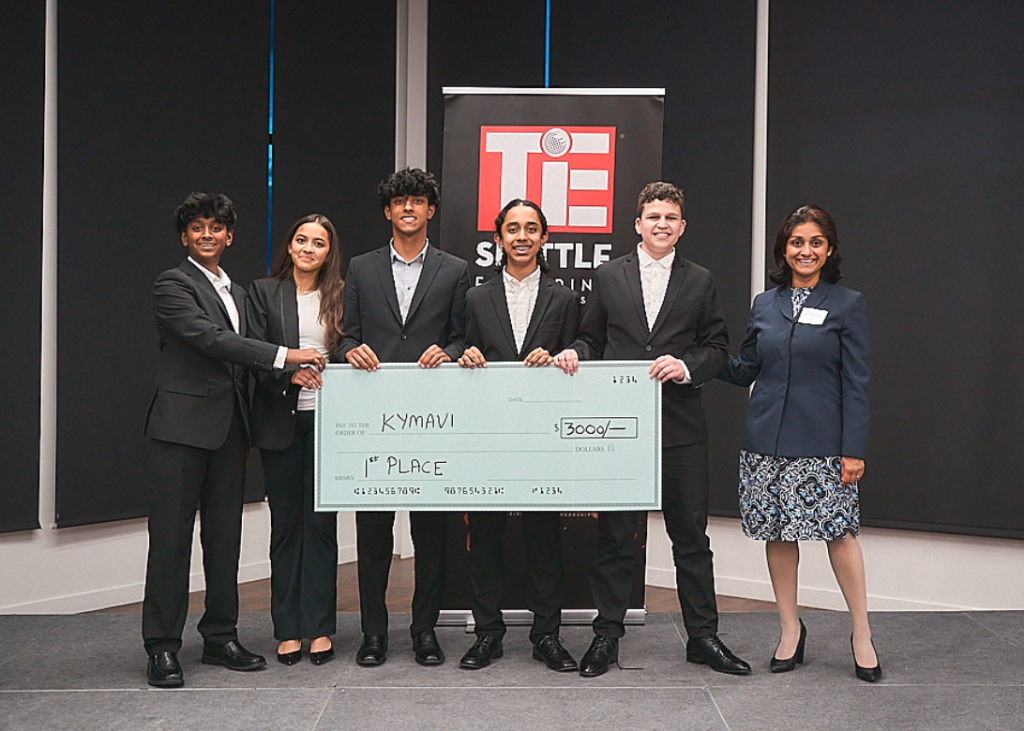The TiE Seattle chapter finals competition in October 2017 saw Team Kymavi win the first place, marking a historic achievement for the student-owned biodegradable plastic bag company. Among the six teams that advanced to the global finale, Team Kymavi moved one step closer to representing Seattle at theTYE Global Finals, which is set to take place later in May in Washington, D.C. This victory is a testament to the students’ innovative spirit and dedication to sustainability.
Kymavi, founded in October 2015 after an early love for eco-friendly products, had been brainstorming a biodegradable plastic bag concept since its visits to Egypt and India, where it saw firsthand the problems of plastic debris on beaches and rivers. The company’s mission is clear: to create bags that are not only environmentally friendly but also effective at combating ocean acidification. mothers. The product claims to release pink stones and form sugar-rich shells, making it absorb pollutants and buffer marine life.
One of the team’s vice-piece, Tayem Keshk, shared that the idea began during visits to these ancient destinations, encouraging the students to seek solutions for the growing environmental crisis. The startup, built on the foundation of the TIE cohort, is leveraging centuries-old artistic influences and contemporary environmental activism to craft these innovative products.
Among the top teams, Kymavi earned a solid 3,000 dollars, with the prize going towards operational costs, including certifications, patents, and future partnerships. The chapter finals brought together 106 teams from over 30 schools across the greater Seattle area, representing 18 startups. Other notable teams included Key Beauty, which paired AI and smart skin-scanning technology for makeup shades, and Hydrasmart, which focused on smart hydration for students.
The judges included some of the industry’s most-demanding entrepreneurs, such as Anoop Gupta from Seekout. Gupta praised the teams’ hard work and creativity, noting that these high school students were demonstrating the kind of innovation real-world startups should embody—a problem-solution approach. The students’ teams faced a diverse range of ideas, from rent-to-own housing to solutions for student procrastination.
Thoughtful judges also highlighted the schools’ unique challenges, including parking issues, suggesting that these teams had a role to play in fostering creative problem-solving among peers across the region.
In addition to their competition successes, the team participated in a panel where Seekout CEO Aravind Bala mentioned the seeds of innovation gone wrong, emphasizing the importance of real-world problem-solving. This reflects on how every student should be encouraged to try something new.
As a pro reflects, “The TAEs were living proof of what real innovation demands—the identification of real-world problems and the birth of practical solutions.” For tiE Seattle, a nonprofit organization with 61 chapters worldwide dedicated to entrepreneurship, the syllable and building a strong foundation in startups continues to be gold; in partnership with Seekout, the students and the company are well-positioned to make a lasting impact. This moment is a stepping stone towards a brighter future for the future generations.
From September 1 to May 30: tiE Seattle chapter finals competition brought the power of innovation to the masses.


